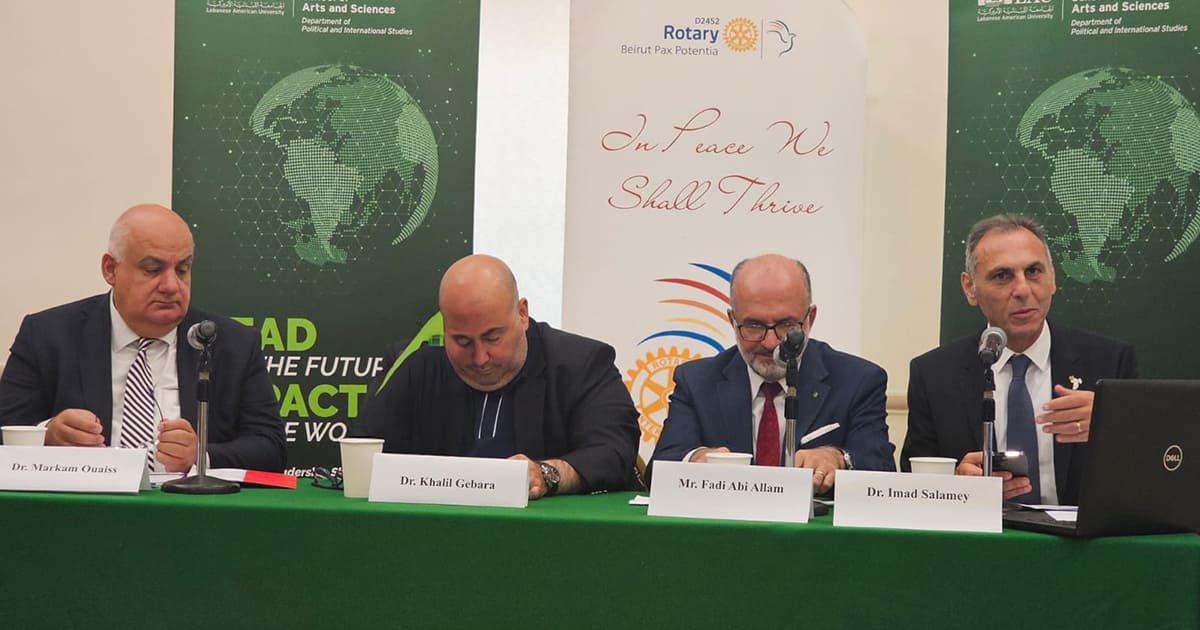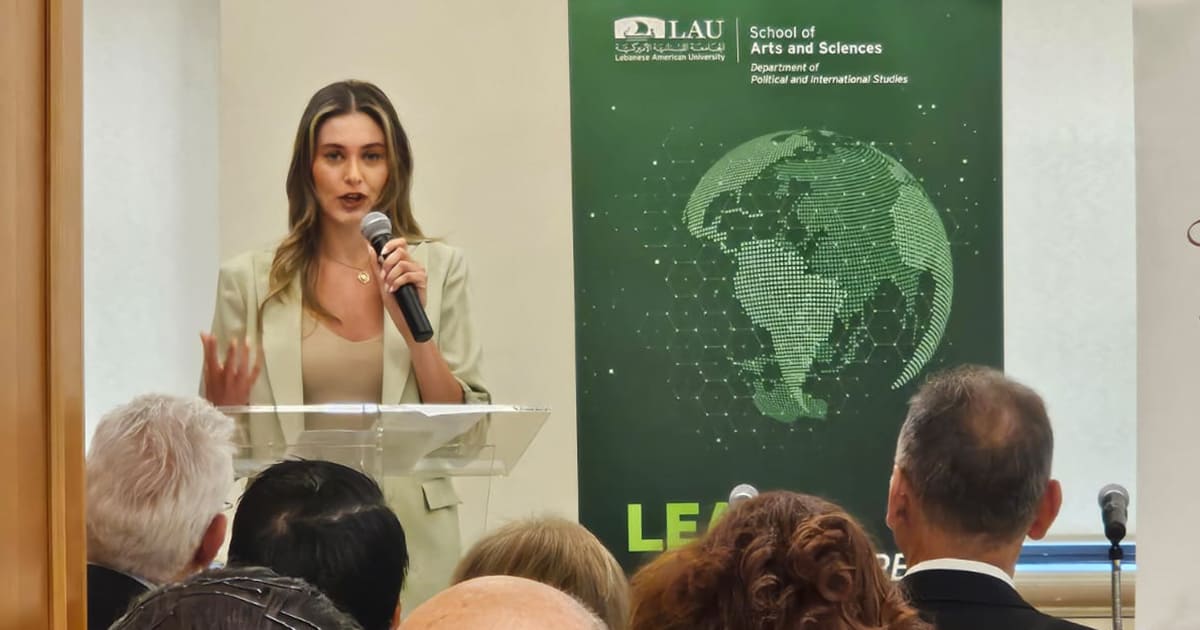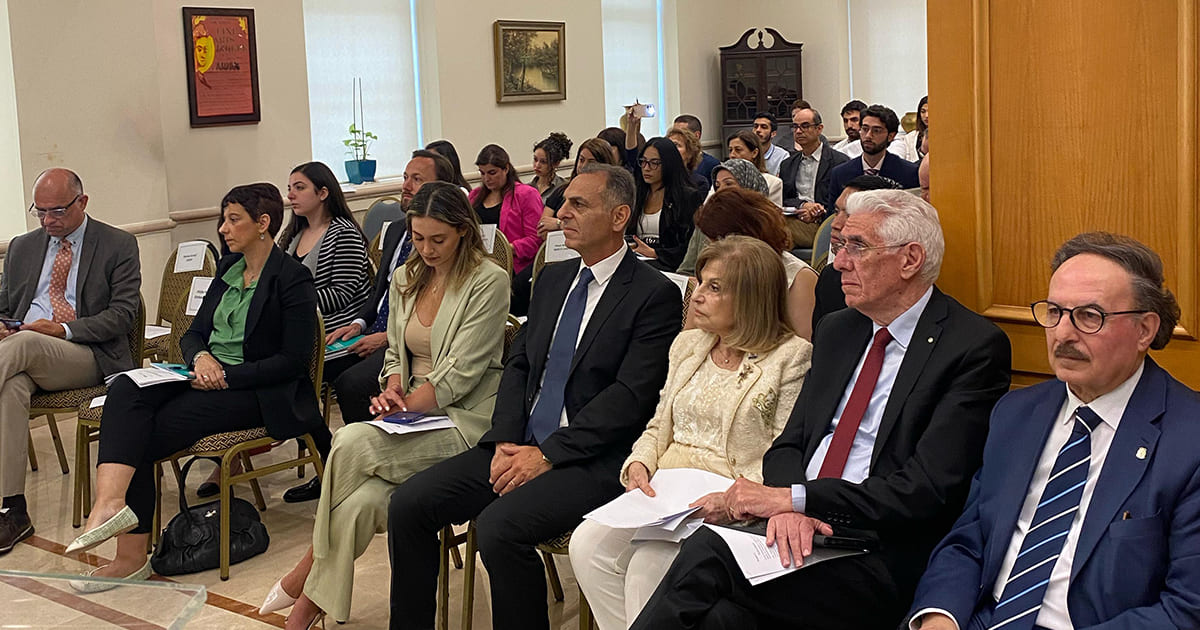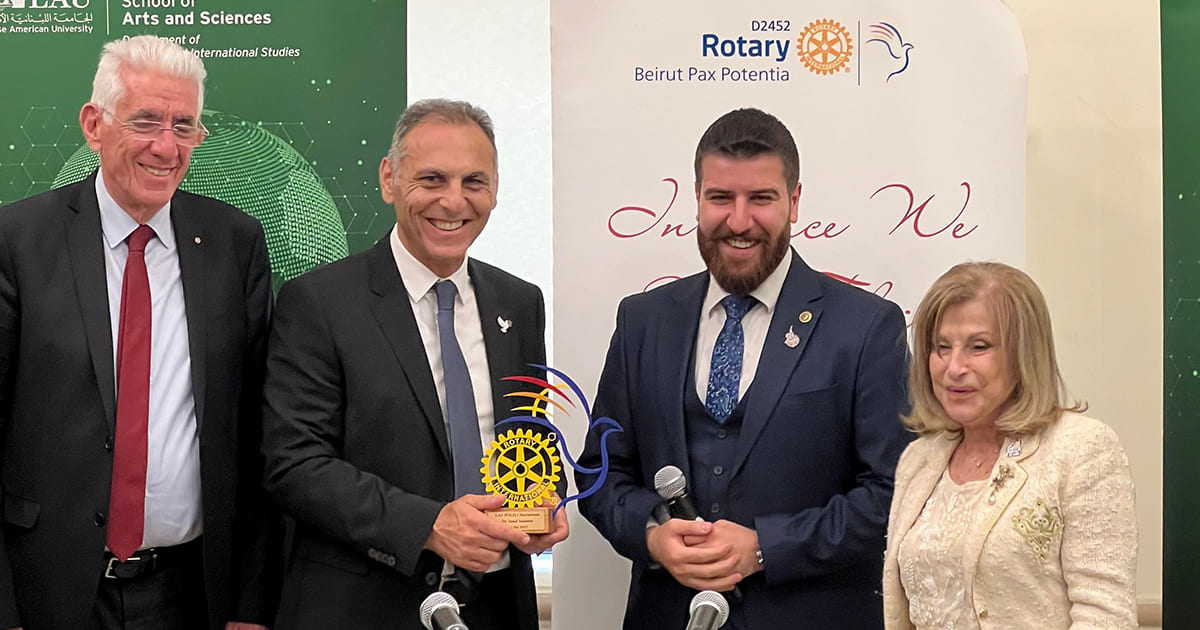The War Has Ended, but Have We Healed?
LAU’s Department of Political and International Studies reflects on 50 years since the Lebanese Civil War through dialogue on healing and sustainable peace.
Lebanon’s modern history has been shaped by periods of conflict and transition, marked by a tumultuous background of a civil war whose repercussions are still evident today. While the war officially ended in 1990, its unresolved impact persists in the country’s political dissension and memory.
Marking the 50th anniversary of the outbreak of the Lebanese Civil War, the Department of Political and International Studies (POLIS) at the LAU School of Arts and Sciences (SoAS), in collaboration with the Rotary Club of Beirut Pax Potentia, held a full-day conference titled Lebanon 50 Years On, Bridging Divides: A Dialogue for Positive Peace on April 23, 2025 on the Beirut campus.
Structured around three panel discussions—each addressing critical dimensions of post-war Lebanon—the conference sought to “establish a platform for meaningful dialogue, promote healing and reconciliation, and engage diverse perspectives for a more resilient society,” said POLIS Chair Imad Salamey in his welcoming speech.
Each panel served as a reminder that “meaningful reconciliation requires actively working toward a more inclusive Lebanon,” said Rotary Club president Noor Akoum in a recorded message.
The event gathered scholars, practitioners, and civil society members to explore the long-lasting influence of war as Lebanon enters a new phase of “transitional justice that would hopefully bring about sustainable peace to the country,” added Dr. Salamey.
In attendance were ambassadors, diplomats and minister counsellors from across Europe—including Maria Hadjitheodosiou representing Cyprus, Julius Johann Klüpfel representing Germany, and Johan Arief representing Malaysia, among others. They were joined by faculty and students, in addition to members of the Lebanese public who have carried intergenerational memories of the war.
Among the voices that enriched the conversation of the symposium was Miss Lebanon Nada Koussa—also a licensed clinical psychologist—who drew on her years of experience working with trauma survivors. Koussa stressed how the 15 years of mass violence, sectarianism and an unstable social fabric led to a contemporary climate of fear and festering grief.
“Despite the scars hidden underneath the resilience of the Lebanese people, these conversations help us shape our individual trauma into a collective one,” she said. “Once shared, we reclaim power over the hurt, and we move toward creating a better future for ourselves.”
Much of the discussions that followed, some of which featured LAU faculty, centered around the multiple dimensions of post-conflict engagement.
The conversations ranged from the dominance of sectarian narratives throughout Lebanon’s history and the necessity of dismantling current, postwar political and economic systems through institutional reform and justice, to calling for a peace-oriented history education that enables the Lebanese society to acknowledge its past without being trapped by it.
Overseeing each discourse, LAU political science and international affairs graduate and founding president of the Rotary Club of Beirut Pax Potentia Anhal Kozhaya (BA ’23) highlighted the importance of creating spaces to not only voice stories but also “engage with the past in ways that foster empathy rather than division.”
Another consideration that arose investigated women’s overlooked contributions as both survivors and architects of Lebanon’s recovery, revealing how women developed survival networks during the war and later spearheaded reconciliation efforts, despite being excluded from formal politics.
“All of these panels are not meant to open wounds, but to mend them,” concluded Dr. Salamey. “Moving forward, we must remember that peace is nurtured day by day, one step at a time.”
At the end of the event, the Rotary Club presented Dr. Salamey with an Honorable Membership Certificate in recognition of his contributions to making space for academic dialogue that advocates for reformation and collective healing.



